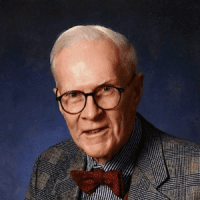On page 3, members will see the slate of candidates for the 1991 election of officers and committee members of the Association to fill the vacancies that occur this coming December. The Nominating Committee met on the weekend of Valentine’s Day in Washington, sacrificing family commitments to come up with what can only be described as a “sweetheart of a ticket!” It is certainly appropriate here to pay tribute to the hard, slogging work that goes into such a creation, which can be fully appreciated only by those who have served on a nominating committee.
These dedicated souls examine in detail information on the qualifications of potential candidates and discuss the suggestions of outstanding historians received from members. They must supply two candidates for each vacancy, contact them all by telephone, and obtain their consent to stand for election. Fortunately, our leading colleagues are so dedicated to the Association that the Committee encounters relatively few William Tecumseh Sherman-style refusals by potential candidates.
The Program Committee for 1991 met the first weekend in March to complete the bulk of its work on the design of our Chicago program this December. As members will recall, our meeting dates fall on the cusp of the Columbus quincentenary year, and a significant part of the program will be devoted to that observance, enabling us to get the jump on other celebrants. The Council has authorized our 1992 program also to pay attention to the semi-millennial observance, with particular focus on the impact of the Columbian encounter and its consequences on indigenous inhabitants of the Western hemisphere. We are pleased that the new system of having the following year’s Program Committee co-chairs serve on the current year committee is working well, according to reports we have received.
The deputy executive director represented the Association at the meeting of the oversight committee of the History Teaching Alliance at the University of Florida that same weekend. The oversight committee agreed to fund ten collaboratives on constitutional rights under a regrant from the Bill of Rights Education Collaborative, a joint AHA—American Political Science Association project funded by the Pew Charitable Trusts. We will publish a list of the recipients next month; see page 4 for a list of other projects funded thus far through the Bill of Rights Education Collaborative.
The Committee on Women Historians met on March 8. The Committee considered several new initiatives for roundtables and annual meeting sessions. These included a possible African-American women’s history and public policy roundtable based on the successful model at Sarah Lawrence in 1989 on women’s history and public policy. In thinking about the needs of graduate students, the CWH suggested a series of annual meeting panels on the integration of personal and professional issues within the lives of women historians. Topics such as mentoring strategies would be addressed in these sessions. CWH also focused attention on issues concerning gay and lesbian historians.

